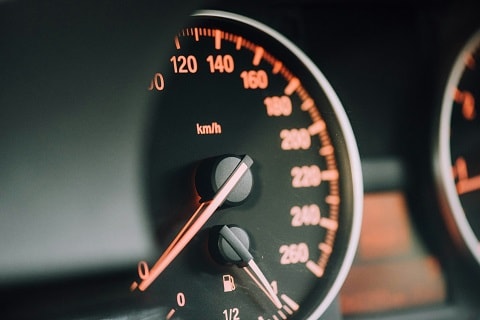
âIs there anything more frustrating than your car not accelerating when pressing the gas pedal? Plenty of drivers face this issue every day. The causes can range from simple problems, such as a dirty air filter, to more complex issues with the transmission or engine. Understanding what's behind your car's sluggish performance can help you know how to fix car acceleration problems and when you need professional help to get you safely back on the road.
Recognizing Problems With Acceleration in Your Vehicle
Signs of acceleration problems in your vehicle include a sluggish gas pedal response, a stuttering engine, difficulties going uphill, or unusual noises or vibrations. These signs can creep up on you slowly, so they're easy to ignore. Other warning signs that something's wrong with your vehicle include power loss, illuminated dashboard warning lights, and fluid leaks.
Before heading for repairs, take a moment to investigate the issue yourself. Ask yourself when the problems occur. Do they only happen during cold starts, on the highway, or in stop-and-go city traffic? Consider recent maintenance, too. Have you changed the air or fuel filter recently? These details can help mechanics diagnose the issue faster.
Common Reasons for Acceleration Issues
When your car won't accelerate properly, the issue will usually fall into one of several categories.
Fuel Delivery and Air Intake Problems
Your engine needs the right mix of fuel and air to run well. Modern fuel injection systems deliver gas at specific pressures and times, while air intake systems ensure a steady supply of clean air. If either system is compromised by dirt, blockages, or worn parts, your engine can't generate enough power to accelerate properly. Keeping these systems clean and well maintained is vital for good performance.
Common fuel delivery and air intake problems include:
- Clogged or dirty fuel filters: Your vehicle's fuel filter prevents dirt and debris from reaching the fuel injectors. Clogged filters restrict fuel flow, causing weak acceleration and leading to symptoms such as engine misfiring, hard starting, power loss, variable engine speeds, lower gas mileage, rough idling, or stalling.
- Faulty mass air flow sensor: This sensor measures the amount of air entering the engine and helps your car's computer to calculate the right fuel mix. Failing sensors can cause an illuminated check engine light, low gas mileage, rough idling, stalling, variable acceleration, engine misfires, smoke, and strong gas odors.
- Dirty or clogged air filters: Air filters block dirt while allowing clean air to reach your engine. Clogged filters restrict airflow, causing weak acceleration and poor fuel economy.
Exhaust System and Emission Control Issues
Your exhaust system helps to clear spent gases from the engine while also reducing harmful emissions. When this system becomes blocked, it creates backpressure, which decreases engine power and efficiency.
A clogged catalytic converter is a common issue. Catalytic converters transform harmful gases into safer substances, but over time, they can become blocked, creating backpressure that weakens acceleration, reduces fuel economy, and causes the engine to overheat. Replacing a catalytic converter costs anywhere from $200 to $3,000.
Malfunctioning oxygen sensors are another source of acceleration problems. These sensors monitor the exhaust gases and help your engine maintain the correct mixture of air to fuel. Oxygen sensors typically last for 30,000 to 100,000 miles, and when they start to fail, you may notice poor fuel economy, a rotten egg smell, black exhaust smoke, rough idling, weak acceleration, misfires, and stalling. Replacement costs are around $200-$400 per sensor.
Engine and Transmission Challenges
Your engine and transmission work together to deliver power to the wheels. Issues in either system can cause acceleration problems and will require you to seek professional help.
Common problems include:
- Faulty throttle position sensor: This sensor helps to control fuel injection and spark timing, based on the position of your gas pedal, and a malfunctioning sensor can cause weak acceleration, sudden surges in speed, or your car to enter limp mode. They typically last 80,000 to 150,000 miles, and replacement costs range from $150 to $700.
- Timing belt or chain problems: Timing belts and chains help to synchronize the engine valves and pistons to ensure proper combustion, and if they become worn, your engine can suffer weak acceleration and a loss of power. Replace timing belts every 60,000 to 100,000 miles and chains every 150,000 miles.
- Transmission slips or failures: Transmission problems can weaken acceleration and often stem from worn clutches, torque converter issues, or low transmission fluid. Preventive maintenance is crucial, as transmission repairs can be costly.
Electronic and Ignition System Issues
Modern cars rely heavily on electronics and sensors to regulate engine performance, spark timing, and fuel delivery. Your vehicle's computer systems constantly tweak operations based on sensor readings, driving conditions, and performance needs. If electronic parts or sensors fail, your engine can't maintain proper acceleration. These types of problems can be tricky to diagnose, making professional testing important for accurate repairs.
Ignition components, such as coils and spark plugs, are also important for effective acceleration. Worn spark plugs or coils can cause engine misfires and poor acceleration. Recommended spark plug change intervals vary by type and driving conditions, but it's usually in the region of 30,000 to 100,000 miles. Coils typically last longer but can fail from heat, vibration, or electrical issues.
Getting Expert Help for Your Acceleration Problems
When basic checks don't solve your problems with acceleration or safety concerns arise, get professional help. Today's vehicles need specialized diagnostic equipment and technical expertise to solve acceleration issues accurately. At Huffines Chevrolet Plano, we understand how frustrating car troubles can be and work fast to get you back on the road safely. We're also committed to clear pricing and using only genuine Chevy parts.
Don't risk your safety. Contact our team in Plano, Texas, today to schedule a professional diagnosis and properly fix acceleration issues.
Image by CHUTTERSNAP | Licensed with Unsplash License